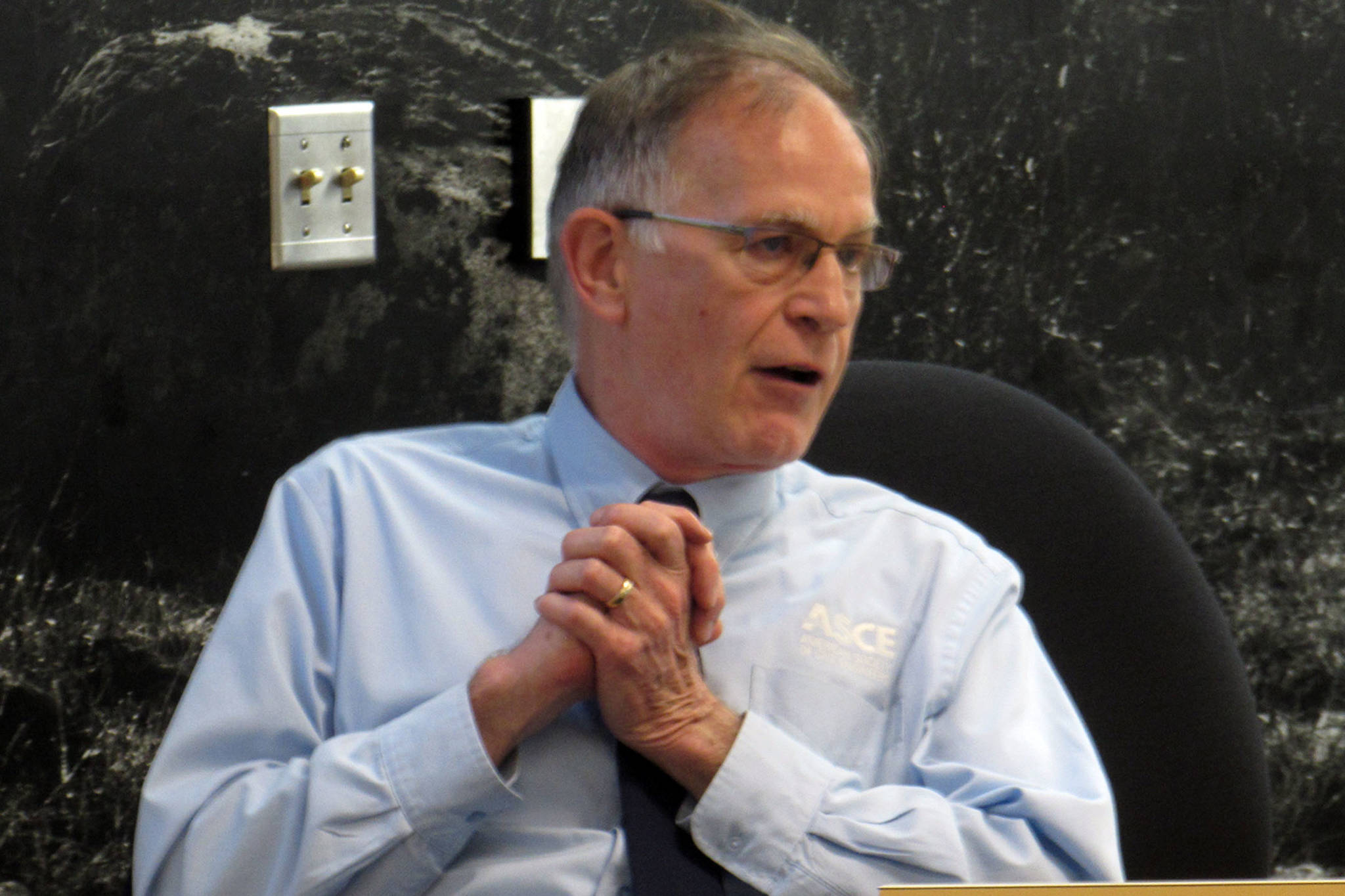Infrastructure isn’t the most glamorous topic, but roads, bridges and water treatment plants make life better and worth keeping in mind, said engineers Monday afternoon to kick off Infrastructure Week in Juneau.
That’s why Infrastructure Week, an annual event observed in Juneau and communities around the nation highlights the way infrastructure enhances the economy, quality of life and public safety.
“I always joke that infrastructure doesn’t vote, and that’s why we need a reminder,” said Carl Uchytil, Port Director for City and Borough of Juneau Docks & Harbors, who led a presentation at City Hall to kick off the week. “We take it for granted that if you turn your faucet on that water is going to come on. That if you flush your toilet, it’s going to go some place, it’s going to be treated and somebody is going to take care of it. Infrastructure is not something you should take for granted. It takes planning and maintenance.”
The City and Borough of Juneau Assembly proclaimed May 13-17 infrastructure week Monday evening, and the week includes a handful of ribbon cutting ceremonies at noon at Docks & Harbors facilities.
[Three calls for help in one hour]
Tuesday, there was a ribbon cutting for cathodic protection marine park retaining wall at Marine Park Pavilion, Wednesday there will be one for a new float extension at Auke Bay Marine Station, Thursday’s ribbon cutting is at Mike Pusich Douglas Harbor for a new sewage holding tank and Friday’s will be at a visitor’s center kiosk north of the Downtown Library.
The week started off with a presentation from Uchytil and other ASCE members, who gave an overview of the state of Alaska’s infrastructure through an infrastructure report card.
The summary of infrastructure in the state is released every four years by ASCE and assigns letter grades to things such as dams, bridges, drinking water, ports and more.
As a whole, Alaska graded out as a C-, which is slightly better than the U.S. as a whole, which received a D+.
However, grading Alaska’s infrastructure is a tricky premise, said Uchytil, Alaska section secretary for ASCE Justin Kanouse and ASCE branch treasurer Lucas Chambers.
They explained the categories were evaluated on the basis of capacity, funding, future need, operation, maintenance, public safety, resilience and innovation, but there are enormous disparities between conditions in Alaska.
During Uchytil’s presentation, he said 72 percent of the state’s population lives in the Anchorage, Fairbanks or Juneau metro areas.
In those communities, water treatment and drinking water and solid waste infrastructure may be significantly better than they are in more remote parts of the state.
[Tentacled treat is about to hit the market in Southeast]
Of 280 rural communities, 31 have no centralized water or wastewater system, according to the report.
“There’s some unique challenges to grading our infrastructure,” Uchytil said.
The state’s highest scoring category was bridges at a B- while drinking water, ports and marine highways formed a three-way tie for last place with D grades.
The report card noted the majority of Alaska’s bridges are younger than 50 years old, and newer infrastructure tends to be in better condition.
Categories with lower letter grades, could generally be improved with increased spending, according to the report.
Areas in which the state performed better could typically be best assisted through long-term strategic planning and maintenance, according to the report.
“The take away is all Americans use infrastructure, and it’s a perishable commodity,” Uchytil said.
• Contact reporter Ben Hohenstatt at (907)523-2243 or bhohenstatt@juneauempire.com. Follow him on Twitter at @BenHohenstatt.

